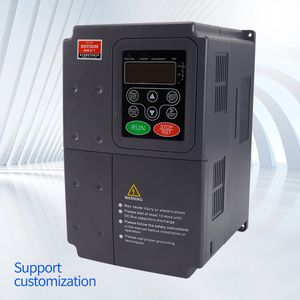PWM DC Converter: An Overview
The PWM DC converter is a sophisticated electronic device designed to regulate DC voltage levels while optimizing power efficiency. Utilizing Pulse Width Modulation (PWM) technology, these converters adjust the voltage output through varying the width of the signals, ensuring a stable and reliable power supply for various applications. From powering industrial machinery to electronic devices, PWM DC converters play a crucial role in modern electronics.
Types of PWM DC Converters
PWM DC converters come in several types, each tailored to specific applications and operational needs. Here are the most common types:
- Step-Down (Buck) Converters: These convert a higher input voltage to a lower output voltage, ideal for low-voltage applications.
- Step-Up (Boost) Converters: Boost converters increase the voltage level from a low input to a higher output, making them perfect for battery-operated devices.
- Buck-Boost Converters: Capable of either stepping up or stepping down voltage based on requirements, these converters are versatile for fluctuating input voltages.
- Isolated Converters: These converters use transformers to provide electrical isolation, enhancing safety and efficiency in high-voltage environments.
Applications of PWM DC Converters
PWM DC converters are integral to a myriad of applications, ensuring effective voltage regulation in diverse fields. Notable applications include:
- Renewable Energy Systems: Used in solar panel setups and wind turbines for effective power regulation and storage.
- Electric Vehicles: Convert battery voltage levels for efficient power management and increased range.
- Industrial Equipment: Maintain optimal voltage levels for motors and robotics, enhancing performance and longevity.
- Consumer Electronics: Essential in personal gadgets like laptops, smartphones, and gaming consoles for dependable power supply.
Features of PWM DC Converters
The efficiency and versatility of PWM DC converters are attributed to several advanced features:
- High Efficiency: Enhanced power efficiency minimizes energy loss, making it an eco-friendly choice for many applications.
- Wide Input Voltage Range: They can operate under a broad range of input voltages, accommodating varying power sources.
- Compact Design: Their small footprint allows easy integration into various electronic systems without occupying excessive space.
- Thermal Protection: Most models come with built-in thermal management, preventing overheating and reducing the risk of failure.
- Versatile Control Options: PWM DC converters offer multiple control strategies such as voltage regulation and current limiting, catering to specific operational needs.






























































































































































































